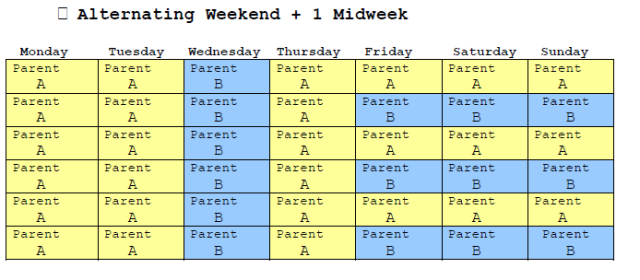Any Florida parent who is going through a divorce with children or otherwise dealing with child custody issues will need to have a parenting plan. A parenting plan is document that is either agreed upon by the parents or created by a judge that sets out each parents’ rights and responsibilities. The Sixth Judicial Circuit (Pinellas and Pasco Counties) further describes a parenting plan as follows:
It is the public policy of this state to assure that each minor child has frequent and continuing contact with both parents after the parents separate or the marriage of the parties is dissolved and to encourage parents to share the rights and responsibilities, and joys, of childrearing. Florida Statutes, section 61.13(2)(c).
A parenting plan is a document developed and agreed to by the parents of a minor child, and approved by the court, or if the parents cannot agree, established by the court, which governs the relationship between the parents regarding the child (encompassing “custody”, “parental responsibility”, and “visitation”). A parenting plan may address issues such as the child’s education, health care, and physical, social, and emotional well-being, and must include a time-sharing schedule. The parenting plan must take into account the Uniform Child Custody Jurisdiction and Enforcement Act, the International Child Abduction Remedies Act, the Parental Kidnapping Prevention Act, and the Hague Convention on the Civil Aspects of International Child Abduction when addressing jurisdictional issues.
For purposes of establishing or modifying parental responsibility and creating, developing, approving, or modifying a parenting plan, including a time-sharing schedule, which governs each parent’s relationship with his or her minor child and the relationship between each parent with regard to his or her minor child, the best interest of the child shall be the primary consideration.
Any parenting plan approved by a court must address the following issues:
Read more →





